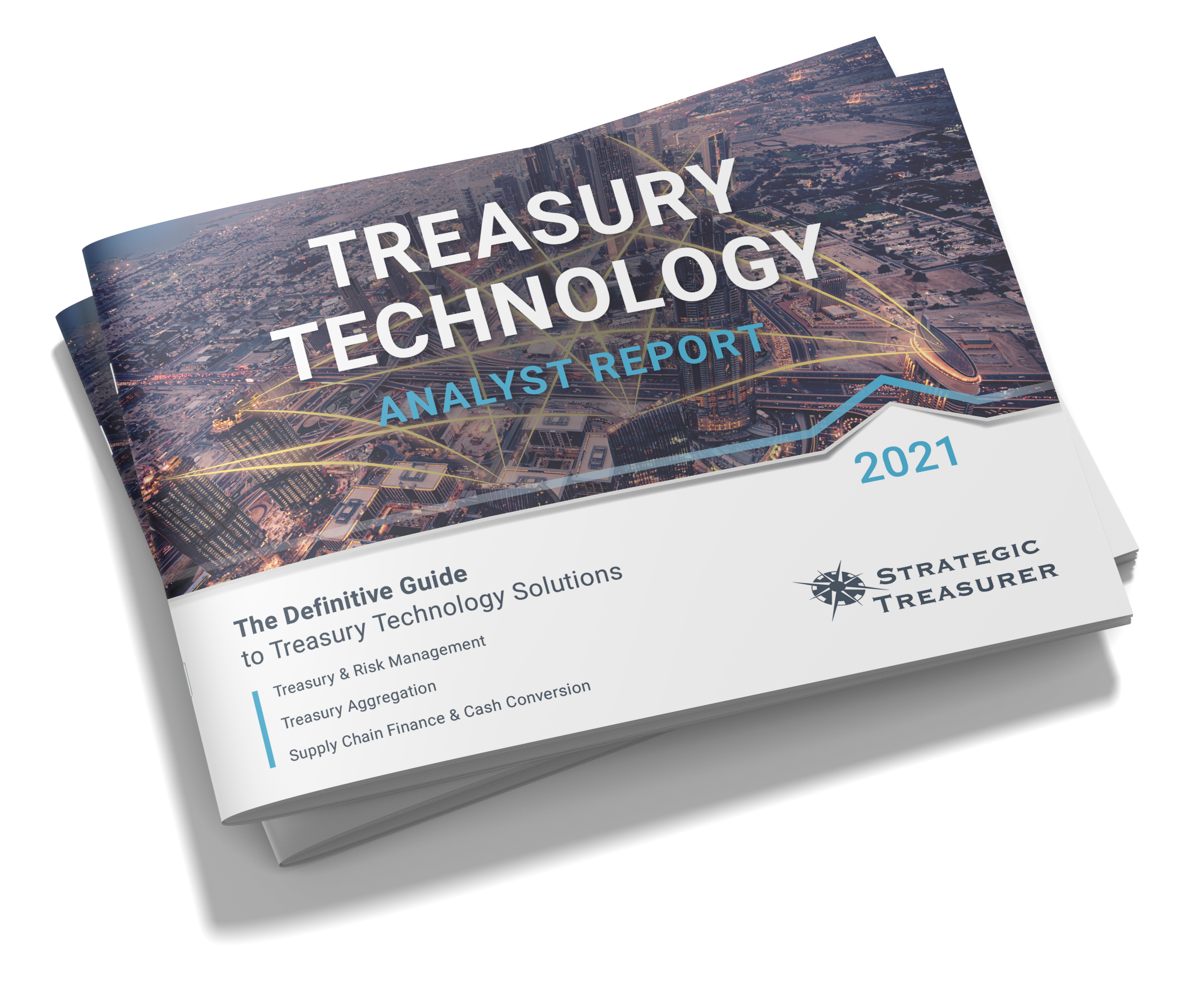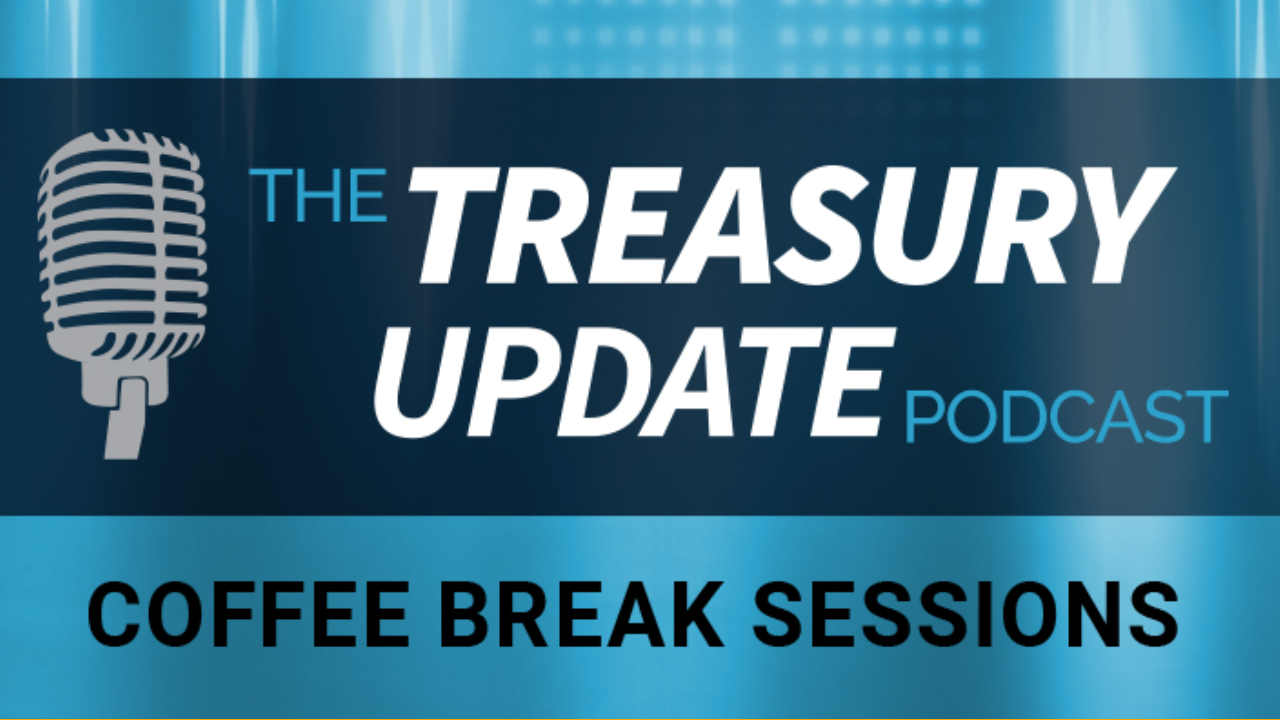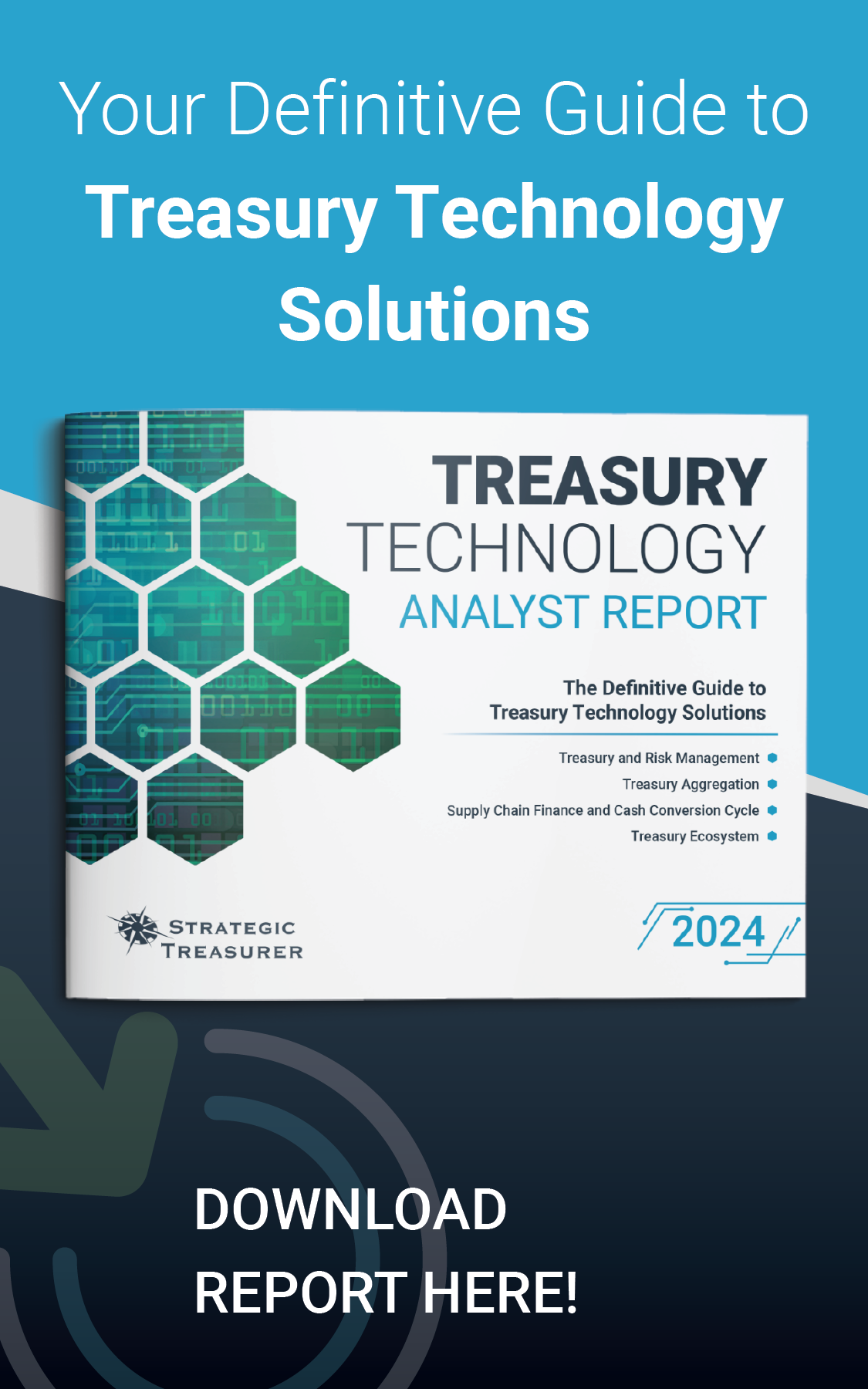
Session 68
Coffee Break Session:
What Is Beta Investing?
Host:
Jason Campbell, Strategic Treasurer


Speaker:
Paul Galloway, Strategic Treasurer


Episode Transcription - (Coffee Break Session Series) - Episode 68 - What Is Beta Investing?
Jason Campbell 00:03
Welcome to the Treasury Update Podcast, Coffee Break Sessions presented by Strategic Treasurer covering foundational topics and core treasury issues. And about the same amount of time it takes you to drink your cup of coffee. I’ll be your host Jason Campbell, business development leader as Strategic Treasurer. Alright chatting with me today is Paul Galloway, Senior Advisor at Strategic Treasurer, Paul, how you doing today?
Paul Galloway 00:24
Doing great.
Jason Campbell 00:27
Fantastic. Thank you so much for joining me, I’m looking forward to another great topic around investing. In our previous sessions, we’ve learned a lot from efficient frontier, introduction to the creeks and alpha investing. So the opposite of alpha we’re going to talk about today is beta. So I’m really interested in learning and hearing your point of view around beta. So let’s kick it off with explaining what is beta investing.
Paul Galloway 00:50
Let’s start with what beta really is. So beta is a measure of stocks volatility relative to the market volatility. There are characteristics of price movements for securities relative to the market that behave sometimes in tandem, and sometimes not as much as the market would move, and sometimes greater than the market would move or opposite. So when you think about the market, beta market beta is considered to be one. If a stock’s beta is 1.1. That means that the stock’s price will have greater movement than the markets price movement. Likewise, if a stock’s beta is point nine, this means that the stock’s price will have less movement than the market’s movement and price.
Jason Campbell 01:45
Is a high beta better?
Paul Galloway 01:48
Well, they can be if an investor has a high risk tolerance, they are better positioned to invest in high beta stocks that have the potential to generate returns that exceed the market. So let’s say our market beta we talked about earlier as one, let’s say an investor invests a stock that has a beta of 1.5. This means every $1 price movement, the price movement of the stock will be 1.5 times greater than the market price appreciation. The flipside is true that if the market moves down by $1, well, that stock price is going to move down 1.5 times greater than the movement of the stock or the market price. Risk tolerance matters in beta when you’re looking at data or investing in stocks based on beta.
Jason Campbell 02:44
So can beta actually ever get to being less than zero?
Paul Galloway 02:50
Yes, it can. If stock has a beta of one, it was considered it would be considered to be positively correlated or perfectly positively correlated, to the market market has a beta one stock has a beta of one, the move in lockstep a stock and have a beta of negative one, it will move in the opposite direction of the market. If you have a beta of negative one for the stock that you picked, that means it’s perfectly negatively correlated to the market. So if the market price appreciation drops by $1, that stock value should increase by the reciprocal of that.
Jason Campbell 03:38
From what you just described around beta, why would one be a beta investor in your opinion?
Paul Galloway 03:45
Well, as always, when it comes to investing, one metric or measure should not be used alone. To make investment decisions, you have to do your homework, you have to do your fundamental analysis. You have to do quantitative qualitative analysis, you have to put some homework in to make an investment decisions. But if I was a contrarian investor, what they do is, if the market is going up, and people are buying stock, they’re going to do the opposite. They’re going to sell stock, they have a alternative view or reciprocal view of what the market does. Likewise, if the market is selling off, they’re going to be buying a contrarian investor may want to have negative beta stocks in their portfolio, because they’ll behave in the opposite direction of the market. The other thing that you can get from negative beta beta stocks is diversification of your portfolio. So in essence, you can have a small hedge in your portfolio by having negative beta either stocks in the portfolio so that if you had higher beta stocks, and you wanted something to give you a little bit of insurance, if the market behaves in the opposite direction of what you anticipate to offset the higher beta stocks, you would introduce some negative beta stocks into the portfolio that would mute the amount of volatility in the portfolio.
Jason Campbell 05:26
I think one thing I can also agree with you on is there’s just listening to you describe that is doing your homework is absolutely critical and ensuring that you’re assessing the appropriate step knowing where it’s like a roadmap, right? You there could be three or four different ways to get to the optimal spot, you’ve got to pick the best option that you feel is going to get there with you know, some some variables, you know, that you got to put into play. But you know, just making sure that you’re making that educated decision, right, so Absolutely. Fantastic. Well, thank you, Paul. Again, for for joining me today. I really do appreciate the conversation around the beta on the side of the Greeks. And for our listeners, please be sure to tune in every first and third Thursday of the month for a new episode of the Coffee Break Sessions. As usual, if you have any questions, comments, or suggested topics you’d like to hear, please send us a note at podcast@strategictreasurer. And until next time, take care.
Announcer 06:20
This podcast is provided for informational purposes only, and statements made by Strategic Treasurer LLC on this podcast are not intended as legal, business, consulting, or tax advice. For more information, visit and bookmark strategictreasurer.com.
Researching new treasury and finance technology can be overwhelming. Strategic Treasurer has stepped in to help. Explore our definitive guide to the treasury technology landscape and discover detailed, data-based coverage of:
- Treasury & Risk Management Systems
- Treasury Aggregators
- Supply Chain Finance & Cash Conversion Cycle
A part of the Treasury Update Podcast, Coffee Break Sessions are 6-12 minute bite-size episodes covering foundational topics and core treasury issues in about the same amount of time it takes you to drink your coffee. The show episodes are released every first and third Thursday of the month with Host Jason Campbell of Strategic Treasurer.




